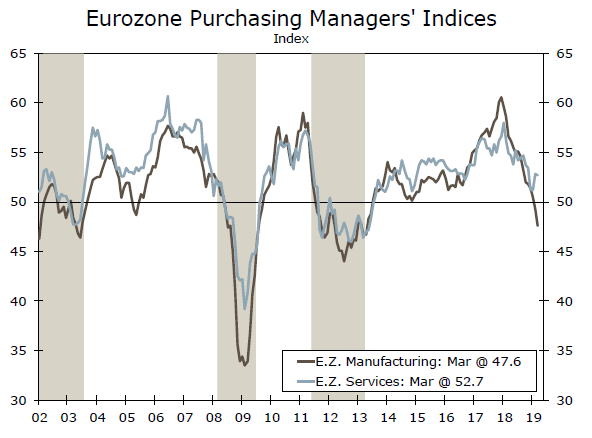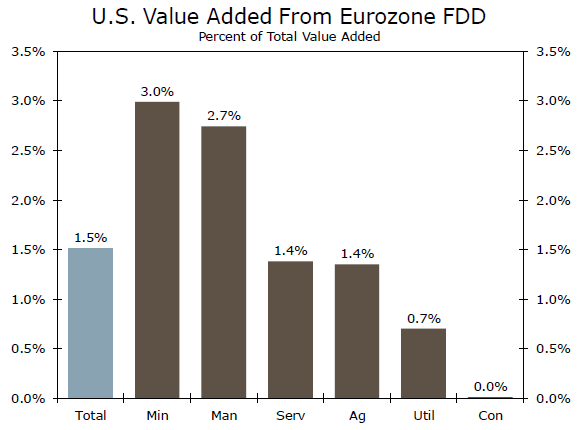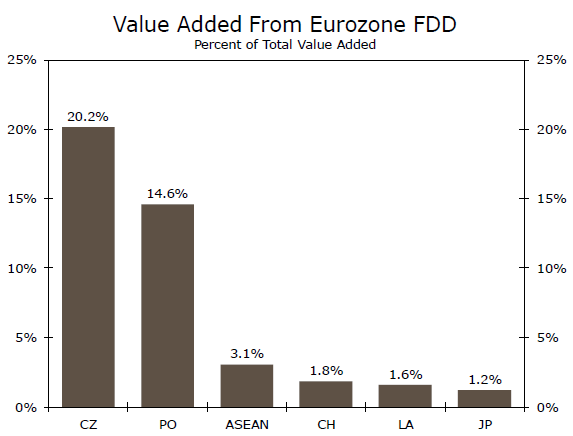Measuring the Effect on Value Added
Recent economic data shows that the pace of economic activity in the Eurozone has been lackluster. Not only did the year-over-year rate of real GDP growth in the euro area fall to just 1.1% in Q4-2018, the slowest rate of economic growth in more than four years, but the outlook for the current quarter is not any better. As shown in the top chart, the manufacturing PMI in the Eurozone fell to its lowest level in nearly six years in March. The manufacturing PMI in Germany, the largest individual economy in the euro area, tumbled to only 44.7 in March. Could this slowdown in the Eurozone lead to significant economic weakness in other economies?
Let’s start with the United States. The 19 individual economies that comprise the euro area bought more than $230 billion worth of American goods in 2018, and we estimate that service exports totaled about $180 billion or so last year. So American exports of goods and services to the Eurozone totaled more than $400 billion in 2018. In addition, U.S. parent companies received about $475 billion worth of net income from their subsidiaries operating in the Eurozone in 2016 (latest available data).
These absolute numbers are large, but they must be put into the context of the overall U.S. economy. As shown in the middle chart, final domestic demand (FDD)—final spending by consumers, businesses and government in the Eurozone on American exports of goods and services—accounted for only 1.5% of the value added that was created in the U.S. economy in 2015 (latest available data). To the extent that American parent companies use the net income they earned from their Eurozone subs to pay dividends to American shareholders, then the proportion of total U.S. value added that is accounted for by final spending in the Eurozone would be pushed up a bit more. But the bottom line is that there would need to be a significant deceleration, if not outright contraction, in the Eurozone economy to have a meaningfully depressing effect on U.S. economic growth.
Are there any other countries or regions that have high degrees of exposure to the Eurozone? Given geographical proximity, it would be reasonable to expect that countries in eastern and central Europe may be highly dependent on final spending in the Eurozone. We do not have data for all economies in central and eastern Europe, but data from the Czech Republic and Poland are instructive. As shown in the bottom chart, FDD in the Eurozone accounts for 20% of value added in the Czech Republic and about 15% in Poland. But the euro area is much less important to China (less than 2% of value added) and Japan (only 1%). In sum, deceleration in the Eurozone can lead to slower economic growth in large economies such as the United States, China and Japan, at the margin. But it would take a meaningful economic contraction in the euro area to lead to significantly slower growth in those large economies.



